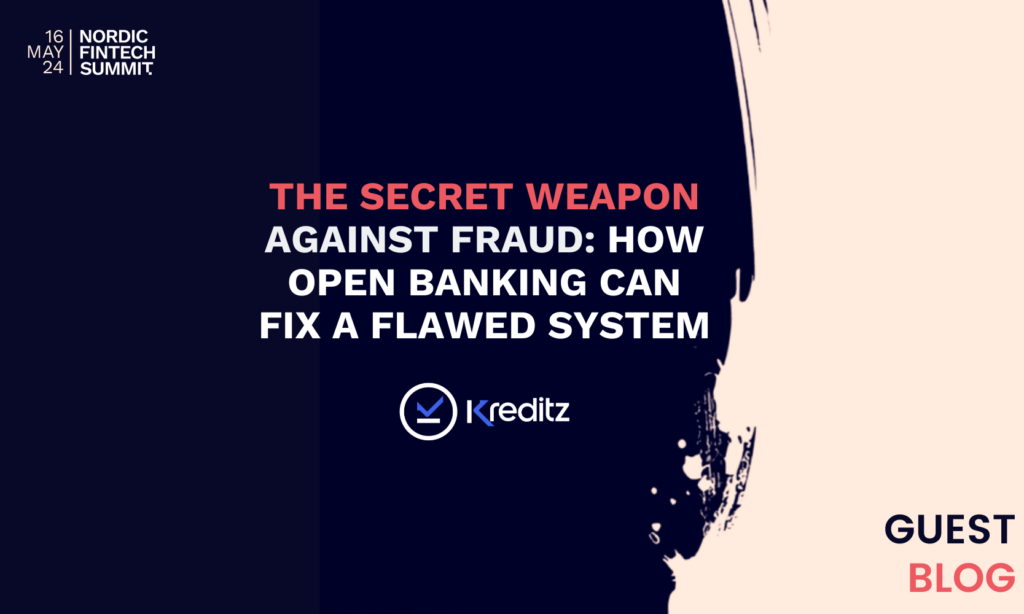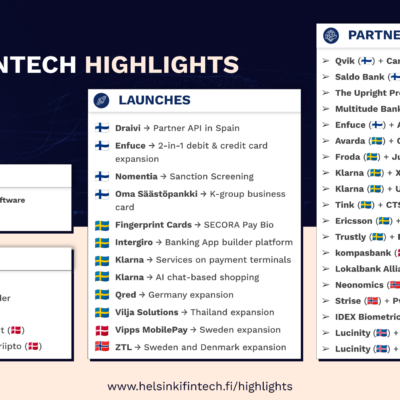Kreditz joined the Nordic Fintech Summit as this year’s partner and had the opportunity to discuss the intricacies of Finland’s positive credit registry. We contrasted these complexities with the experiences of Sweden and Norway’s Positive Credit Registries, exploring how Finland can learn from their approaches.
What We Know From Neighboring Countries
Norway implemented an income registry in 2017 and a credit registry in 2019 while Sweden has had a limited, semi-official credit registry for a long time. We have witnessed how organized crime uses weaknesses in income data reported to taxation authorities undermining the reliability of traditional credit reports.
Starting with Norway, which implemented the credit registry hoping to revolutionize credit assessment and diminish fraud. While the registry may have led to stricter credit checks, fraud loss levels remained unchanged, and the registry may have even restricted access to credit for some borrowers. Despite the newly implemented technology, without a proper understanding how that data is utilized and interpreted, Norwegian banks experienced the same issues as before.
Sweden’s major banks, including Swedbank, Nordea, SEB, and Danske Bank have all faced high-profile financial misconduct cases. The most common type of lending application fraud today involves using false income information obtained through fraudulent payroll companies. This manipulated data then ends up in the taxation registry, credit report, and lending applications. We believe that Finland is at risk of experiencing these same trends.
“By using fake employment certificates, we ended up paying out large numbers of mortgages to people with no or little taxable income.” – Magnus Källhager
Beyond the Registry: Building a Stronger System Together
While Finland’s new credit registry promotes transparency, limitations such as restricted access and missing income data could pose difficulties for both lenders and borrowers due to incomplete risk assessments. Collaborative efforts are needed to address these limitations and create a more inclusive and reliable credit system.
At Kreditz, we believe Open Banking and PSD2 data hold the key to unlocking the true potential for a fair and secure credit system. This data enables smarter lending practices like credit scoring, income verification and calculating disposable income. Furthermore, by leveraging machine learning, we can identify fraudulent income data and lower the fraud risks in Finland.
Don’t rely solely on the new registry – categorized bank transaction data from Open Banking provides a much clearer picture of a borrower’s financial health. This empowers lenders to make informed decisions and reduce fraud across the region.
AUTHOR
 Magnus Källhager is the Chief Analytics Officer and Co-founder of Kreditz and has spent the past 20 years in the credit and lending industry. With experience across various financial sectors, he has seen financial crime evolve firsthand. Recognizing the challenges, he co-founded Kreditz to directly address these issues and reshape the financial landscape
Magnus Källhager is the Chief Analytics Officer and Co-founder of Kreditz and has spent the past 20 years in the credit and lending industry. With experience across various financial sectors, he has seen financial crime evolve firsthand. Recognizing the challenges, he co-founded Kreditz to directly address these issues and reshape the financial landscape
KREDITZ
Missed the action? Make sure you won’t miss our upcoming events and sign up for our newsletter!



